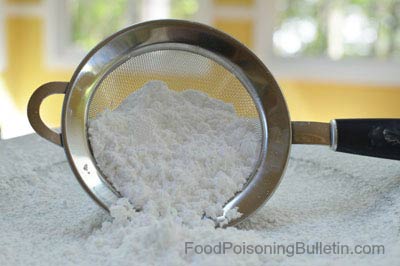The Center for Science in the Public Interest is saying that the FDA should ban the retail sale of bulk caffeine as a dietary supplement. Parents of two young men who died after ingesting this product met with FDA officials and senators to press their cause. CSPI is formally petitioning the FDA over this issue.
 Katie and Dennis Stiner of Ohio lost their 18 year old son Logan in May of this year. James and Julie Sweatt of Alabama lost their 24 year old son Wade in July 2014 after he ingested caffeine powder for the first time.
Katie and Dennis Stiner of Ohio lost their 18 year old son Logan in May of this year. James and Julie Sweatt of Alabama lost their 24 year old son Wade in July 2014 after he ingested caffeine powder for the first time.
One teaspoon of powdered caffeine is equivalent to 25 cups of coffee. It is very difficult to determine the difference between a safe dose and a deadly dose when caffeine is used in this form. Serving sizes are between 1/32 and 1/16 of a teaspoon – amounts that cannot be accurately measured by consumer utensils. Caffeine powder can be ordered from online retailers and is often marketed as an athletic performance enhancer or a weight loss aid. Two hundred fifty grams of powdered caffeine is the equivalent of 1,000 cups of coffee and costs as little as ten dollars.
FDA’s Adverse Event Reporting system has recorded many problems associated with powdered caffeine, including dizziness, delirium, nausea, vomiting, increased heart rate, and other problems. CSPI chief regulatory affairs attorney Laura MacCleery said, “no one’s diet needs to be supplemented with pure, pharmaceutical-grade caffeine, and it makes no sense for this substance to be available to consumers in this undiluted form. The FDA needs to ban powdered caffeine from the marketplace and ensure that no other families have to endure the tragedy of losing a loved one to this product.
CSPI has urged the FDA to better regulate caffeine-containing products for years. Many products not normally associated with caffeine now contain it, including waffles, hot sauce, chewing gum, and popcorn.
The petition calls on FDA to ban the retail distribution of highly concentrated caffeine marketed as a dietary supplement because it presents a “significant or unreasonable risk of illness or injury” or is an “imminent hazard to public health.” FDA issued a consumer advisory about these products in 2014, but CSPI says that doesn’t go far enough.




